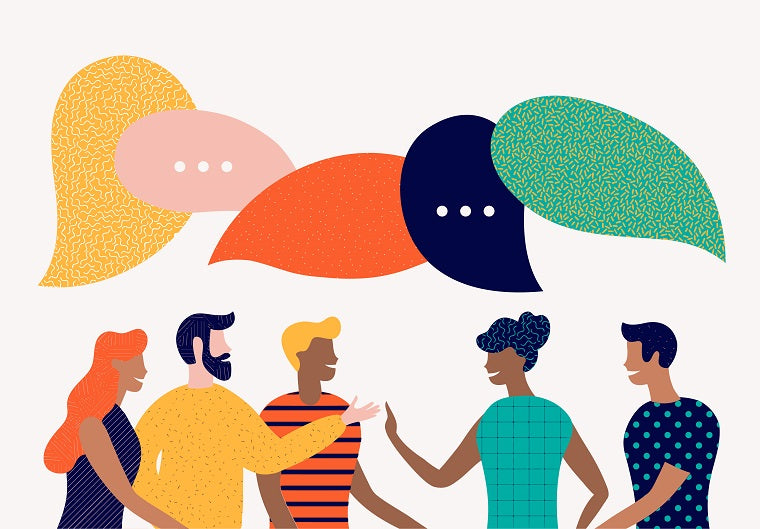

How to Help Someone with Depression
While it can feel overwhelming when someone close to you is experiencing depression, there are many resources in place to help you help them.
Do you have a friend who’s living with depression? You’re not alone.
According to the most recent estimates from the National Institute of Mental Health, just over 7 percentTrusted Source of all U.S. adults experienced an episode of major depression in 2019. The World Health Organization says, just under 300 millionTrusted Source adults and children live with depression.
Recognizing depression symptoms in a loved one
Not everyone experiences depression in the same way, and symptoms can vary.
If your friend is experiencing depression, they may:
- seem more sad or tearful than usual
- appear more pessimistic than usual or hopeless about the future
- talk about feeling guilty, empty, or worthless more often than usual
- seem less interested in spending time together or communicate less frequently than they normally would
- get upset easily or seem unusually irritable
- have less energy than usual, move slowly, or seem generally listless
- have less interest in their appearance than usual or neglect basic hygiene, such as showering and brushing their teeth
- have trouble sleeping or sleep much more than usual
- care less about their usual activities and interests
- experience forgetfulness more often or have trouble concentrating or deciding on things
- eat more or less than usual
- talk about death or suicide
How to help
These 10 tips can help you be a source of support for a friend with depression.
1. Start a conversation
Let your friend know you’re there for them. You can start the conversation by sharing your concerns and asking a specific question.
For example, you might say:
“It seems like you’ve been having a hard time lately. What’s on your mind?”
“The last few times we hung out, you seemed a little down. Is there anything going on you that you’d like to talk about?”
“You mentioned going through some hard times recently — how are you feeling about everything?”
Keep in mind that your friend may want to talk about what they feel, but they might not want advice.
Engage with your friend by using active listening techniques:
Ask questions to get more information instead of assuming you understand what they mean.
Validate their feelings. You might say, “That sounds really difficult. I’m sorry to hear that.”
Show empathy and interest with your body language.
Your friend may not feel like talking the first time you ask, so it can help to continue telling them you care.
Keep asking open questions (without being pushy) and expressing your concern. Try to have conversations in person whenever possible. If you live in different areas, try video chatting.
2. Help them find support
Your friend may not be aware they’re dealing with depression, or they may be unsure how to reach out for support.
Even if they know therapy could help, it can be daunting to search for a therapist and make an appointment.
If your friend seems interested in counseling, offer to help them review potential therapists. You can help your friend list things to ask potential therapists and things they want to mention in their first session.
Encouraging them and supporting them to make that first appointment can be so helpful if they’re having a hard time with it.
3. Support them in continuing therapy
On a bad day, your friend might not feel like leaving the house. Depression can zap energy and increase the desire to self-isolate.
If they say something like, “I think I’m going to cancel my therapy appointment,” encourage them to stick with it.
You might say, “Last week you said your session was really productive and you felt a lot better afterward. What if today’s session helps, too?”
The same goes for medication. If your friend wants to stop taking medication because of unpleasant side effects, be supportive, but encourage them to talk with their psychiatrist about switching to a different antidepressant or stopping their medication entirely.
Abruptly stopping antidepressants without the supervision of a healthcare professional may have serious consequences. Typically, reaching out to a healthcare professional before stopping medication use can prevent health complications.
4. Take care of yourself
When you care about someone who’s living with depression, it’s tempting to drop everything to be by their side and support them. It’s not wrong to want to help a friend, but it’s also important to take care of your own needs.
If you put all your energy into supporting your friend, you’ll have very little left for yourself. And if you’re feeling burned out or frustrated, you won’t be much help to your friend.
Set boundaries
Setting boundaries can help. For example, you might let your friend know you’re available to talk after you get home from work, but not before then.
If you’re concerned about them feeling like they can’t reach you, offer to help them come up with a contingency plan if they need you during your work day. This might involve finding a hotline they can call or coming up with a code word they can text you if they’re in a crisis.
You might offer to stop by every other day or bring a meal twice a week, instead of trying to help every day. Involving other friends can help create a bigger support network.
Practice self-care
Spending a lot of time with a loved one who has depression can take an emotional toll. Know your limits around difficult emotions, and make sure you take time to recharge.
If you need to let your friend know you won’t be available for a while, you might say something like, “I can’t talk until X time. Can I check in with you then?”
5. Learn about depression on your own
Imagine having to educate each person in your life about a mental or physical health condition you’re experiencing — explaining it over and over again. Sounds exhausting, right?
You can talk with your friend about their specific symptoms or how they’re feeling, but avoid asking them to tell you about depression in general terms.
Read up on the symptoms, causes, diagnostic criteria, and treatments on your own.
While people experience depression differently, being familiar with the general symptoms and terminology can help you have more in-depth conversations with your friend.
These articles are a good starting point:
- Depression: Facts, Statistics, and You
- Types of Depression and How to Recognize Them
- Causes of Depression
- What It’s Really Like Going Through a Deep, Dark Depression
6. Offer to help with everyday tasks
With depression, day-to-day tasks can feel overwhelming. Things like laundry, grocery shopping, or paying bills can begin to pile up, making it hard to know where to start.
Your friend may appreciate an offer of help, but they also might not be able to clearly say what they need help with.
So, instead of saying “Let me know if there’s anything I can do,” consider saying, “What do you most need help with today?”
If you notice their refrigerator is empty, say “Can I take you grocery shopping, or pick up what you need if you write me a list?” or “Let’s go get some groceries and cook dinner together.”
If your friend is behind on dishes, laundry, or other household chores, offer to come over, put some music on, and tackle a specific task together. Simply having company can make the work seem less daunting.
7. Extend loose invitations
People living with depression may have a hard time reaching out to friends and making or keeping plans. But canceling plans can contribute to guilt.
A pattern of canceled plans may lead to fewer invitations, which can increase isolation. These feelings can worsen depression.
You can help reassure your friend by continuing to extend invitations to activities, even if you know they’re unlikely to accept. Tell them you understand they may not keep plans when they’re in a rough patch and that there’s no pressure to hang out until they’re ready.
Just remind them you’re happy to see them whenever they feel like it.
8. Be patient
Depression usually improves with treatment, but it can be a slow process that involves some trial and error. They may have to try a few different counseling approaches or medications before they find one that helps their symptoms.
Even successful treatment doesn’t always mean depression goes away entirely. Your friend may continue to have symptoms from time to time.
In the meantime, they’ll probably have some good days and some bad days. Avoid assuming a good day means they’re “cured,” and try not to get frustrated if a string of bad days makes it seem like your friend will never improve.
Related Posts
© 2025 Invastor. All Rights Reserved









User Comments